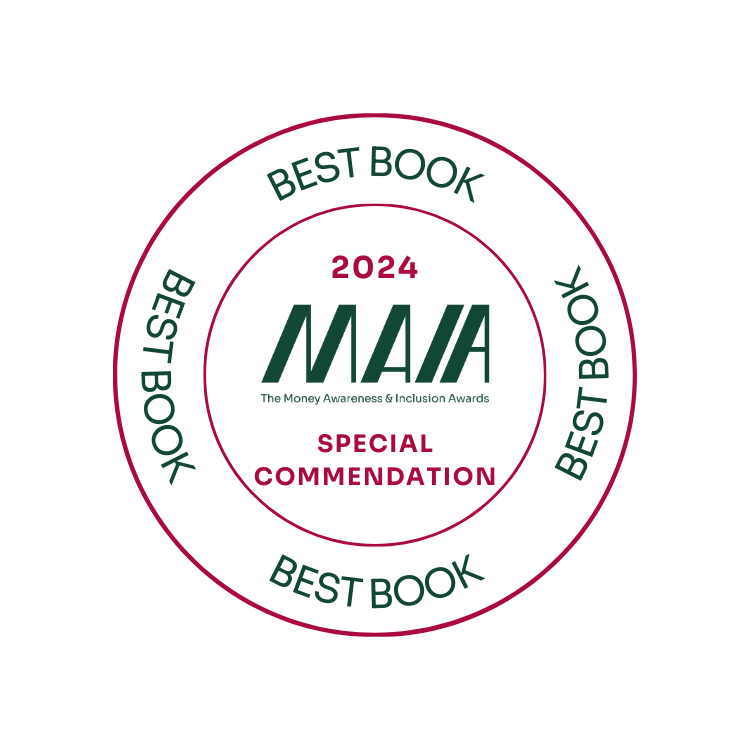Top 10 Must-Read New Books About Money in 2024
By Michael Gilmore, Co-Founder of the Money Awareness and Inclusion Awards (the MAIAs).
“Best Book” was the second most popular category at the MAIAs in 2024, with entries coming from all over the world (our first ever non-English submission), on numerous subjects and for very different target readers. There were kids books, ESG books, money-psychology books as well as just “straightforward” financial education guides as well.
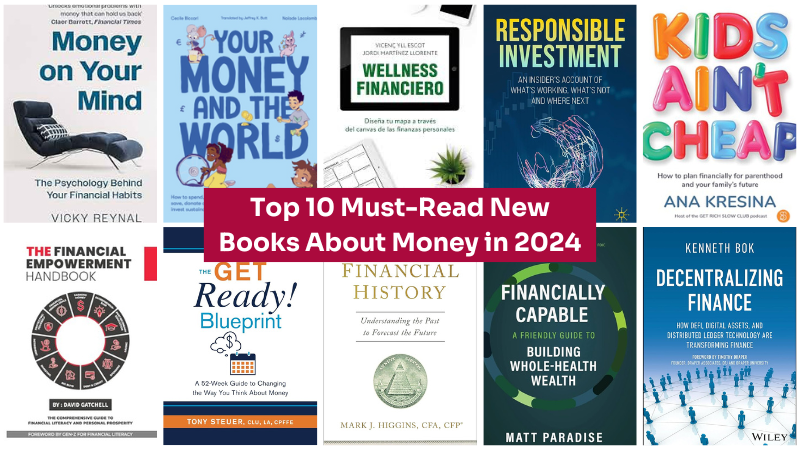
We had to create a special panel of 10 judges to evaluate all the entries, including several authors themselves, as well as academics, finance professionals, influencers and entrepreneurs.
So what did they think of the books they scored as the top 10?
(We make no money from the links on these pages: we must fix that!)
Financially Capable: A friendly guide to Building Whole-Health Wealth
By Matt Paradise
“Was really excited to learn about inclusive strategies for people from disadvantaged communities, particularly from somebody from that background (homelessness, alcohol and drug abuse, prison) with important elements of psychology thrown into the mix.”
“I like that it speaks to the heart (emotions). Money talk can be an emotional topic. Not only is it relatable to the young, it helps adults too. Focused on the readers’ mindset of ‘what’s in it for me’. There is an opportunity to connect with the author, and obtain bonus content and worksheets, which is helpful.”
Money on Your Mind: the psychology behind your financial habits
By Vicky Reynal
(Tied for Winner, Best Book, 2024)
“Eye-opening insights from a practising Money Psychotherapist. Obviously only once you think about it, so much of our money habits (good and bad, overspending and underspending) are rooted in our past experiences, and not even just those involving money. “Money oozes with meaning… its psychological and emotional meaning is diverse and unique to each of us.” Fascinating!
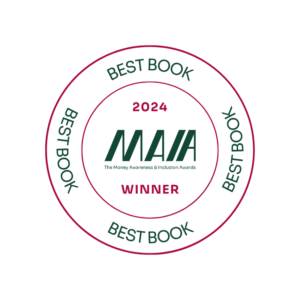
“This book is an easy-to-read analysis of money behaviours from a psychiatrist. Intertwined amongst the financial disorders, types or biases are case study stories from the psychiatrists clientele. This makes for engaging storytelling that readers can relate to – especially how experiences growing up shape our current behaviours. There are many insightful moments for readers.”
By Ana Kresina
(Tied for Winner, Best Book, 2024)
“Honestly, “What to Expect” needs this book as an addendum. So many people financially plan post-baby when it really needs to be pre-baby, especially women. The writing style was perfect, engaging without being infantilizing. And I loved the mix of data and lived-experiences. It was really really engaging. This book should be a bestseller.”
“While the target market of this book is incredibly specialised, parents and parents-to-be, this is also an almost universal experience, and one that can be both stressful and almost bankrupting. Once again, this shows how financial literacy and education can – and should – take a central place in so many different places and times in our lives, but if it doesn’t, it can lead to calamity.”
Responsible Investment: an insider’s account of what’s working, what’s not and where next
By Will Martindale
(Special Commendation, SKBI Prize for Sustainable Finance Literacy, 2024)
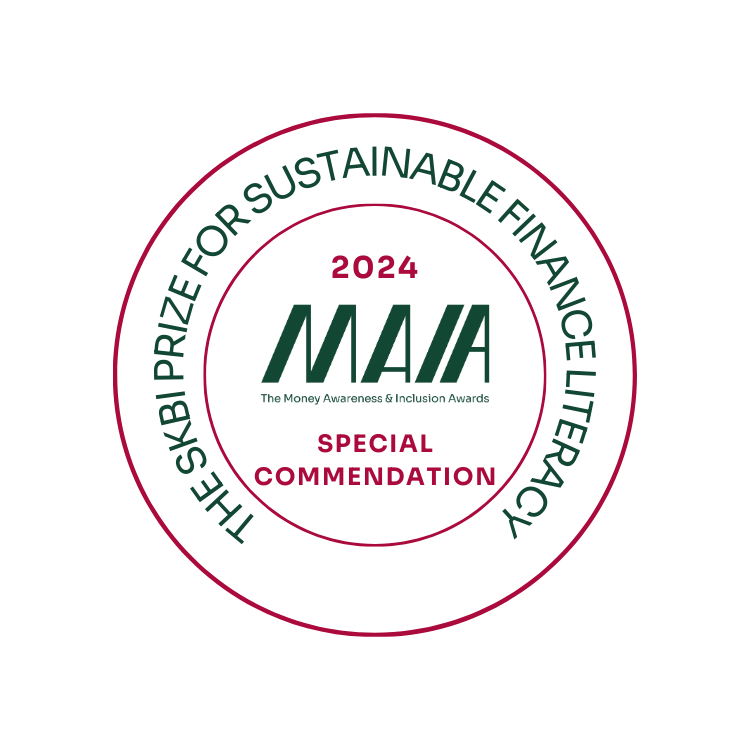
“This book is a really interesting read on the evolution of responsible investing. It provides a useful discussion on terminology (sustainable vs ESG vs responsible investing) and the importance of having various stakeholders (peak bodies, regulators, financial analysts, asset managers and asset owners) prioritise and have passion for achieving better societal outcomes such as that defined by the Sustainable Development Goals. I found it to be easily readable in its approach. It is self-described as part-textbook and part-briefing/storytelling.”
“I thought the book was a good account of the evolution of responsible investment and the PRI. The interviews were really useful. The challenge is that it’s a really broad area and so you will always miss people out and there is selection bias. It’s more a history with a whole set of interesting data points and quotes. The book was really well organised. Great information on what had happened and some of the key issues. As such, it’s a good reference book. I thought he was really careful putting out the points.”
Your Money and Your World
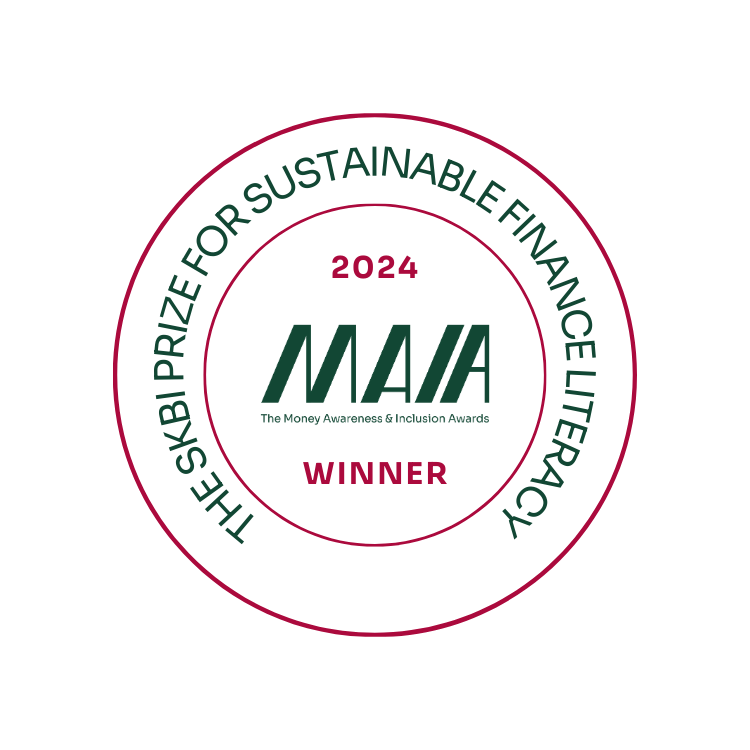
By Cecile Biccari
(Winner, SKBI Prize for Sustainable Finance Literacy, 2024)
“Teaching children about $$ is incredibly difficult and this was a proper effort. The comics were funny at times (broccoli cookies, etc). I was impressed it was set for 7-11 year olds as the second half had some complicated elements. At a minimum, I suspect many people in finance may be able to use this book to explain to children what they do – but more than that, this book does have the potential to reach a larger audience.”
“I really liked Cecile’s book, not least because it targets my 7-11 year old mental age, but also because she covers a lot of ground rather than just the basics of financial literacy. I suspect teachers would find it extremely useful around preparing lessons on finance.”
Investing in U.S. Financial History: Understanding the Past to Forecast the Future
By Mark Higgins
“This is an incredibly deeply researched book, and while it can seem a little dry to the less experienced investor, its examples of financial crashes through the ages are actually incredibly useful to us all – because the next one is never as far away as we think, and they often happen for the same reasons as in the past.”
“My one criticism – or qualification – is whether this is really a book about financial literacy. If it is, it is at the super high end of the spectrum, and certainly not for beginner-level understanding. That said, it is an impressive and invaluable contribution to the subject.”
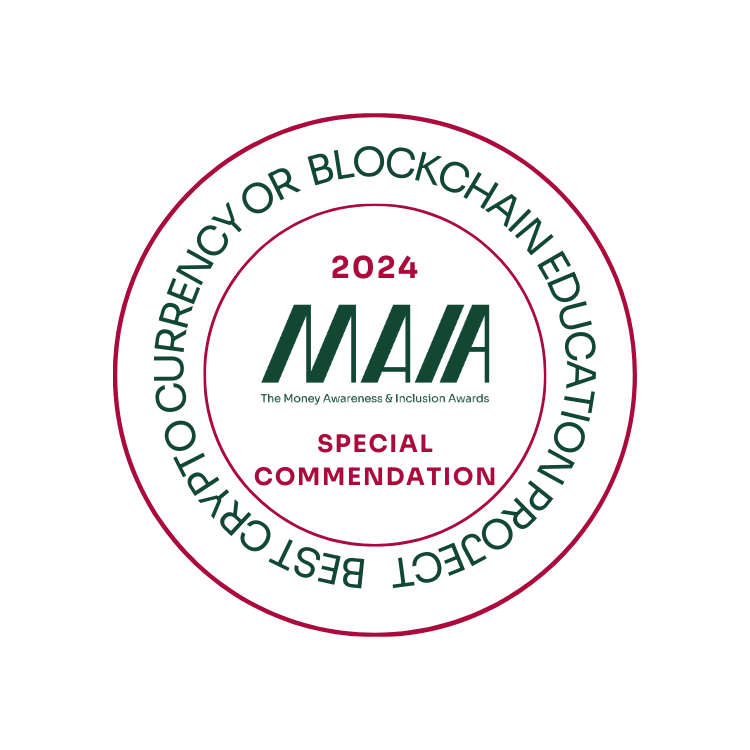
Decentralizing Finance
By Kenneth Bok
(Special Commendation, Best Blockchain or Crypto Currency Project, 2024)
“This definitely raises awareness of a really important subject – that needs more light shined on it. Although it reads a bit like a textbook, it is so well cited, it would probably serve very well as reference material. I’d buy it for that alone.”
“The world is too split between no-coiners and HODLers, and there are too few serious attempts to explain the De-Fi world to outsiders that aren’t overly cheerleading. This fills that gap.”
The Get Ready! Blueprint: A 52-Week Guide to Changing the Way You Think About Money
By Tony Steuer
“This is a workbook-style guide that aims to provide a very immediately actionable roadmap to cultivate good financial habits. And that, on its own, is really valuable.
It might require a little additional knowledge or context – and would make a really valuable supplement to a course or book.”
The Financial Empowerment Handbook
By David G Gatchell
(Runner-up, Best Book, 2024)
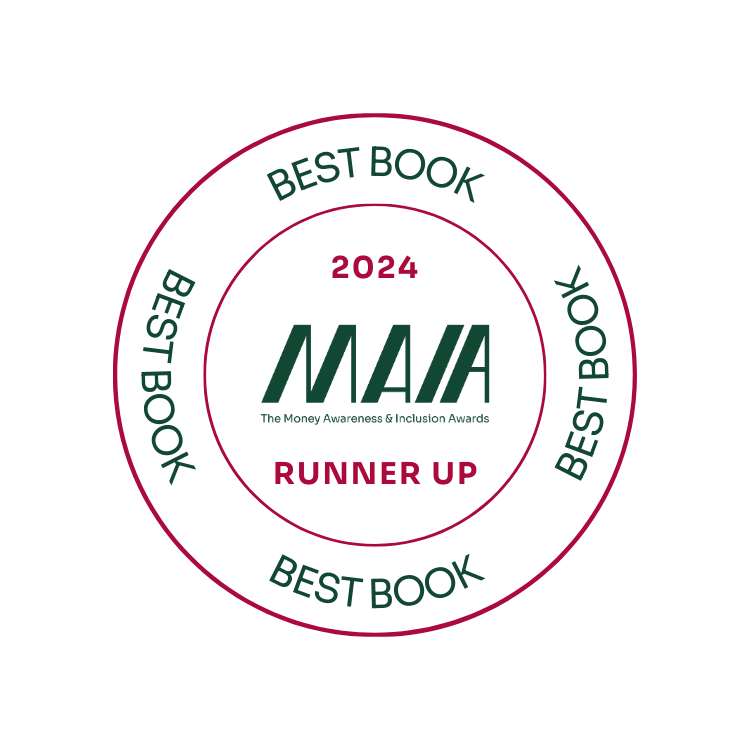
“I liked this one; I appreciate that it doesn’t assume any level of knowledge from the reader, which makes it great for even a younger reader (e.g. 16 year old). It seems very comprehensive, spanning topics from first income to retirement.”
“Easy to read, friendly tone and structured in a way that it flows well from one chapter to the next. As a mother, I would give this book to my teenage children.
I really liked it that he explained how one usually starts to get into the workforce. I also liked it that he introduced redundancy and termination very early in the book, to remind that no job is ever permanent, there are no guarantees, which set the stage for the need for budgeting and financial planning.
The book also has a section on fraud and scams, which is an essential element of financial literacy. Overall, a comprehensive and complete, not patronising, easy to read and follow book for all ages, and this includes readers whose first language is not English.”
Wellness Financiero
By Jordi Martínez-Llorente and Vicenç Yll Escot
(Special Commendation, Best Book, 2024)
“Wellness Financiero,” an insightful guide to managing personal finances. This book takes a practical approach that uses real-life examples to illustrate effective financial strategies that help achieve life goals. The unique methodology employed in this book is similar to how companies manage their finances and is particularly innovative. It is also aligned with the structured guidance found in Alexander Osterwalder’s “Business Model Canvas.” – A book that I love!
The book provides a pragmatic approach to personal finance management, using a structured framework that is easy to understand and apply. Each chapter includes real-life examples illustrating the concepts discussed and enhancing the reader’s ability to relate to and implement the suggested strategies. This book stands out because it innovatively uses a business-like framework to handle personal finance. This approach not only makes the content accessible but is also effective in fostering financial wellness, as its title suggests!
